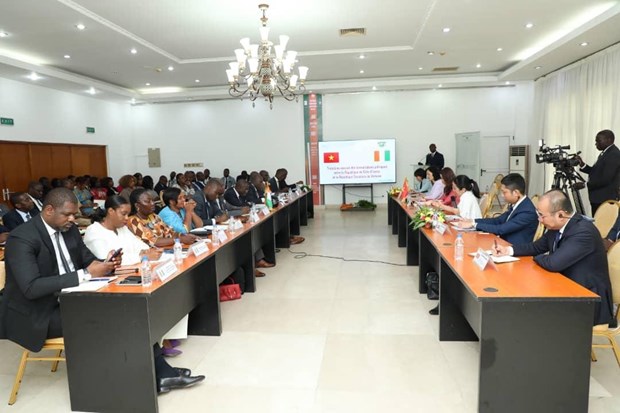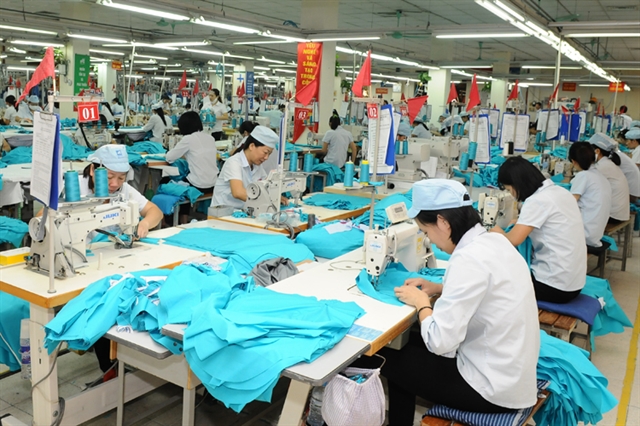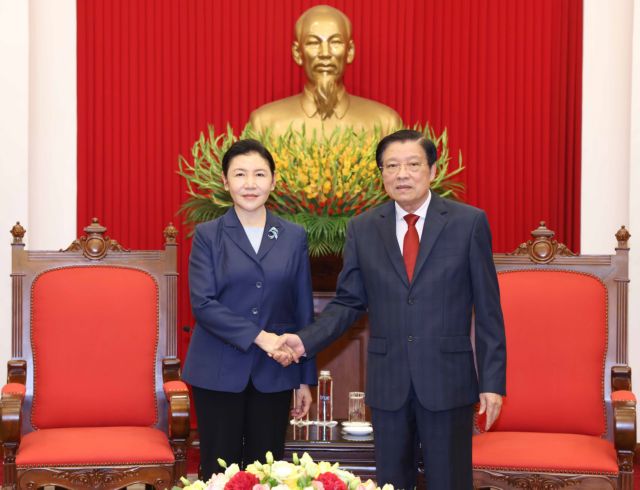 Economy
Economy


|
| Việt Nam already has regulations on labelling products, however, there are no criteria for how products are labelled ‘Made in Việt Nam’.— Photo vccinews.vn |
HÀ NỘI — Việt Nam already has regulations on labelling products, however, there are no criteria for how products are labelled ‘Made in Việt Nam’.
The statement was made by Trần Thị Thu Hương, director of the Centre for Commercial Document Certification of the Vietnam Chamber of Commerce and Industry (VCCI), at a seminar held in Hà Nội on Wednesday.
According to the VCCI’s representative, each country has its own specific provisions for each type of product to be labelled.
For example, the US regulates that all products must be labelled in the originating country when exporting to the US. Except for some cases where goods are not likely to be marked such as fruit, markings on the packages can be applied.
China regulates labelling the origin for imported food products; the EU regulates for imported food and cosmetics products; Japan specifies for imported food, and Russian regulates for all consumer goods.
The concept of “Made in …” is closely linked to the rules of origin for products. The application of origin regulations is sometimes also used to protect the domestic market, Hương added.
She also proposed it necessary to have close coordination among authorities, especially the customs department, to strictly inspect the shipments of components imported into Việt Nam, and control the output shipments of Vietnamese enterprises.
Speaking at the conference, lawyer Trần Ngọc Trung, Senior Regulatory Advisor at Baker & McKenzie, said, in accordance with Việt Nam’s law, manufacturers and importers have the right and responsibility to determine the origin of products, but they must ensure compliance with the provisions of the law as well as the international agreements in which Việt Nam is participating.
The label ‘Made in …’ is very diverse and highly customisable, including in Việt Nam. In case a company's products had components imported from China and assembled in Việt Nam. If we apply the rules of ASEAN Free Trade Agreement, the product cannot be labelled "Made in Việt Nam" but with the regulations in the ASEAN-China Free Trade Agreement, Asanzo’s labelling is absolutely correct, Trung added.
Speaking at the seminar from the perspective of a consumer, lawyer Trung emphasised the significance of product quality rather than its origin label.
“Today, the label ‘Made in …’ is just for reference, quality is the core factor to attract users as well as the main value for branding businesses,” Trung said. — VNS









